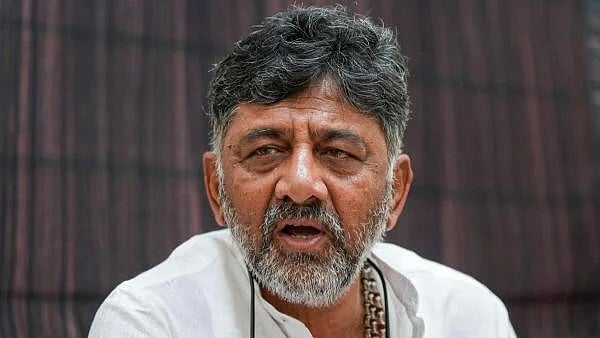
Karnataka Deputy Chief Minister D K Shivakumar
Credit: PTI Photo
Bengaluru: Deputy Chief Minister DK Shivakumar on Wednesday promised to resolve road-related issues by setting a deadline of November-end to fill all potholes.
The assurance, one among many in recent years, comes as Bengaluru’s image has taken a hit due to its crumbling infrastructure, with some companies even considering moving out of the city. “We have given an ultimatum to contractors and engineers to repair potholes by November. Our government is committed to providing a clean Bengaluru and also ensure smooth movement of vehicles,” the Deputy CM said in a social media post, putting the onus on the Greater Bengaluru Authority to address this at the earliest
He said that asphalting works covering 349 km across 182 roads are underway at an estimated cost of Rs 649 crore. “I have directed officials to complete this project quickly so that there are no potholes or instances of waterlogging,” he added. He also said that 178 roads, stretching about 401 km, are under the defect liability period (DLP). “Contractors have been asked to maintain these roads and ensure there are no potholes.”
The post, published on X, received mixed responses from netizens. Some suggested that engineers and officials should be held accountable if the work is not completed, while others noted that the lifespan of such works is less. A few even proposed that the government provide a 50 per cent rebate on property tax if the GBA and the corporations fail to meet the deadline.
GBA Chief Commissioner Maheshwar Rao said a strategy has been prepared in coordination with the traffic police. “The police have given us a list of 1,500 potholes. We will also hold discussion with the five commissioners in case there is any fund shortage. Road restoration work related to the ongoing Metro projects has also been taken up,” he said.
Unlike the National Highways Authority of India (NHAI), which contracts development and maintenance of roads for a longer tenure, the now-dissolved GBA generally had a DLP clause lasting only one year. This forces engineers to repeatedly engage in the tendering process soon after a road is laid.
